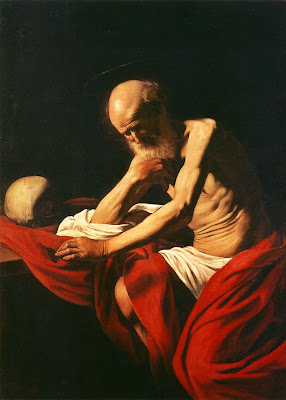 For today's poem, "The Scratch," by Raymond Carver, click here.
For today's poem, "The Scratch," by Raymond Carver, click here.This is a favorite of mine. It is short and simple, but true, and asks a question. This one is especially relevant to me right now, because I can't seem to stop shooting myself in the foot. Figuratively. It happens so often, that I have to ask—why would a man raise up his hand against himself?—and fear the answer.
Carver is one of the States' most major writers. He grew up in Wahington, worked as a teacher, janitor, library assistant textbook editor, etc., and was largely unrecognized as a writer until the early 80's.
His most canonized work is the short story "Cathedral," where a blind man unwittingly teachings a man, one with the power of sight, to see.
Carver died 2 August 1988, at 50, from lung cancer, in Port Angeles, Washington.
His gravestone reads:

LATE FRAGMENT
And did you get what
you wanted from this life, even so?
I did.
And what did you want?
To call myself beloved, to feel myself
beloved on the earth.
The marker also includes his poem "Gravy," which is largely autobiographical, hugely beautiful, and enormously touching, and you really should be reading it, like, now.
Happy Thanksgiving.








